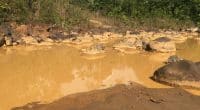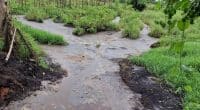Rwanda and Morocco are now co-operating in the field of radiology and civilian nuclear power. The two countries have recently signed a memorandum of understanding to this effect. Thus, Morocco will put its experience at the service of protecting Rwandans and their environment against the harmful effects of ionising radiation.
It may seem rather peculiar, but Rwanda is keen to develop civil nuclear power, while preserving man and the environment. This is the thrust of the agreement signed on Wednesday, May 8, 2019, between the Rwanda Public Utilities Regulatory Authority (Rura) and the Moroccan Agency for Nuclear and Radiological Safety and Security (AMSSNuR). This five-year cooperation agreement covers the exchange of information and experience in nuclear safety regulation and nuclear and radioactive waste management.
The Moroccan side, whose country has more experience in the field of civilian nuclear energy, welcomed this regional cooperation between African countries, before specifying the aspects of cooperation. “Among other aspects, to be addressed by these exchanges will be the medicinal uses of nuclear energy and security issues,” said Khammar Mrabit, Director General of the Moroccan Agency for Nuclear and Radiological Safety and Security. According to the official, 80% of medical applications use nuclear technology in Morocco. More than 15% of industries and the security sector, as well as 5% of research and development work, also use this type of technology.
Rwanda wants to reconcile nuclear technology with environmental protection
Rwanda wants to take into account civilian nuclear power as part of its economic development. “We hope to use nuclear and radiological technology to detect different minerals across the country instead of relying on traditional deposit identification methods. Some minerals may also contain nuclear elements, which increases their market value,” said Jean de Dieu Tuyisenge, Director of Radiation Protection Regulation at the Rura.
Meanwhile, Patrick Nyirishema, Director General of the Rura, said that the other challenge of this memorandum was also to benefit from Morocco’s experience in the field of radiation protection. Rwanda wants to use nuclear power in a way that goes hand in hand with the protection of people and the environment. It is on this basis that the country adopted, on January 24, 2018, a law regulating the use, management and regulation of activities related to ionising radiation, to ensure the protection of people, biodiversity and the environment against the adverse effects of ionising radiation.
According to the French Institute for Radiological Protection and Nuclear Safety (IRSN), improper handling of nuclear products can contaminate water, air and soil. In contact with humans, they are exposed to sources of ionising radiation, resulting in diseases such as cancer, skin burns or acute radiation syndromes.
Boris Ngounou







